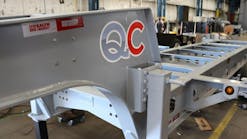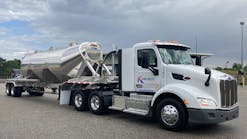Dallas TX-based Transplace experiences firsthand the city’s connection of major interstates, multiple airports, extensive rail systems, and close proximity to Gulf of Mexico freight ports. Due to its central location, Dallas has become the fourth-largest industrial market in the nation.
Strategically positioned to serve both Mexico and the rest of North America, Dallas has a local economy that relies on utilization of cross-border shipping, where trade has more than tripled in the past decade–totaling $57 billion in 2007 between Mexico and Dallas. However, this March saw the creation of a US trade agreement violation that does not allow Mexican trucks on US highways, and vice versa, which has created a major roadblock to this cross-border trade.
Established in 1994, the North American Free Trade Agreement (NAFTA) called for the free movement of trucks between the United States, Mexico, and Canada in order to eliminate barriers and facilitate the shipment of goods. Yet Congress eliminated the funding of a pilot program that allowed a limited number of Mexican trucks to cross over into the United States. Mexico responded in March by imposing $2.4 billion in tariffs on US exports.
These new tariffs have negatively affected exports, which are down this year over 2008. According to the Department of Transportation’s Bureau of Transportation Statistics, June 2009 US-Mexico surface transportation trade was down 21.8% compared with June 2008, while Texas leads all states in surface trade with Mexico—posting $6.8 million for June 2009.
Opposition to the program cites truck safety as a key issue, but there is overwhelming evidence that Mexican drivers are just as safe as American drivers. During the cross-border trucking demonstration pilot programs’ 18 months of operation, 163 trucks crossed the border more than 45,000 times without a significant incident. Equipment used by Mexican carriers is identical to the trucks and trailers bought and used in the United States by domestic trucking companies.
Visit www.transplace.com/media_coverage.htm to learn more.








